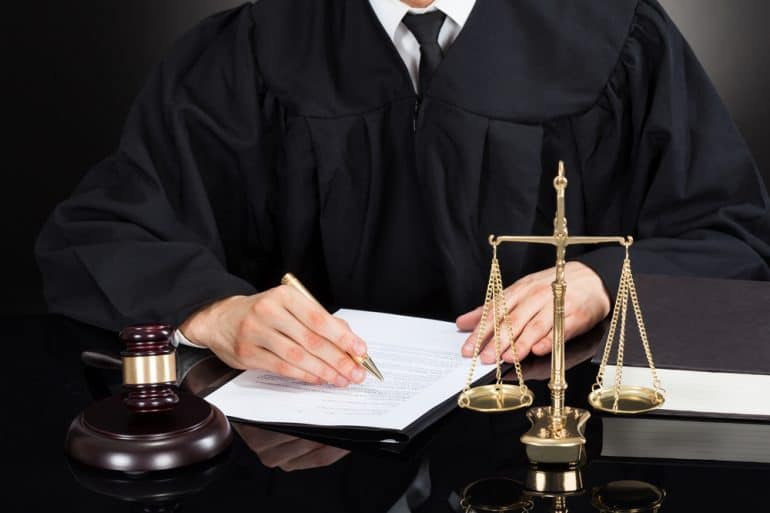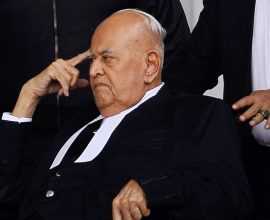Best ever opening lines
Do you like the English language? Here are some of the most memorable lines written by judges.
Judgements can be boring.
Judges are serious people. So what they write tends to be serious.
It is not difficult to be serious. But to inject fun, to express incredulity or disbelief in a way that brings a smile requires a sense of humour.
Now that is an art.
Some judges have it.
Their words cast a ray of sunshine on an otherwise dreary day.
Here are some unusual passages. They bring the fun back into the law.
The idea behind this article is to be credited to other people [1], particularly to a retired judge, Sir Henry Brooke, who writes in his blog: –
‘Two days ago the barrister Gordon Exall [2] prompted Paul Magrath [3] of the Incorporated Council of Law Reporting, to host … a happening, [seeking] the best opening lines in a judgment of the English courts. [A]nd in this blog I have tidied up the results…’. [4]
That is how it all started. I had a look at them. I thought you’d enjoy them. So I bring them to you.
To the collective efforts of these three gentlemen and BAILII, I have added a couple of my own recollections.
I trust you will enjoy them.
We start with Lord Denning. He had a special way with words.
Lord Denning on how to say, ‘Go away’
This is how he explained a story that is familiar to every law student. In this example, Denning quotes Shakespeare:
‘To some this may appear to be a small matter, but to Mr. Harry Hook it is very important.
He is a street trader in the Barnsley market.
He has been trading there for some six years without any complaint being made against him; but, nevertheless, he has now been banned from trading in the market for life.
All because of a trifling incident.
On Wednesday; October 16, 1974, the market closed at 5:30. So were all the lavatories… They were locked up.
Three-quarters of an hour later, at 6.20, Harry Hook had an urgent call of nature. He wanted to relieve himself.
He went into a side street near the market and there made water.. No one was about except one or two employees of the council, who were cleaning up.
They rebuked him. He said:
‘I can do it here if I like’.
They reported him to a security officer who came up.
We are not told the words used by the security officer.
I expect they were in language which street traders understand.
Mr Hook made an appropriate reply.
Again, we are not told the actual words, but it is not difficult to guess.
I expect it was an emphatic version of …
‘You be off’.
At any rate, the security officer described them as words of abuse.
Touchstone would say the security officer gave the ‘reproof valiant’ and Mr Hook gave the ‘countercheck quarrelsome’: (As You Like It ,V, iv).’ [5]
It was a trifling incident, but he injected so much life into it. And saved the man’s livelihood.
Here is one more:
Denning and the division of property
‘I will call her Janet because she has had four surnames already. She was married for the first time at the age of 18; but that marriage only lasted about a year.
Next at the age of 19 she met a man, Stuart Eves. He was a married man. They could not marry. So they started living together.
She took his name and had two children by him. After 4 1/2 years that relationship broke down.
Now both have got divorces from their former spouses and have remarried. The question arises now as to the house where they lived’. [6]
Lord Justice Megarry on Errol Flynn’s life
‘Errol Flynn was a film actor whose performances gave pleasure to many millions.
On June 20, 1909, he was born in Hobart, Tasmania, and on October 14, 1959, he died in Vancouver, British Columbia.
When he was seventeen, he was expelled from school in Sydney, and in the next 33 years he lived a life which was full, lusty, restless and colourful.
In his career, in his three marriages, in his friendships, in his quarrels, and in bed with the many women he took there, he lived with zest and irregularity.
The lives of film stars are not cast in the ordinary mould, and in some respects Errol Flynn’s was more stellar than most.
When he died, he posed the only question that I have to decide: where was he domiciled at the date of his death?’ [7]
Lord Justice Donaldson and ‘a date with legal immortality’
‘On November 15, 1978, the plaintiff Alan George Parker, had a date with fate – and perhaps with legal immortality.
He found himself in the international executive lounge at Terminal One, Heathrow Airport.
And that was not all.
He also found a gold bracelet lying on the floor’. [8]
Lord Justice Tomlinson decries an order enforcing a non-existent agreement
‘By an Order of 21 March 2014 Mr David Donaldson QC, sitting as a Deputy Judge of the Chancery Division … ordered ‘implementation of an arrangement lacking (as pleaded, and perhaps in fact) agreement of an important element.’
In consequence he attributed to the Appellant Mr.Thevarajah and to the First, Second and Fourth Respondents, respectively … an agreement which, demonstrably, they had not made.
The question which arises on this appeal is whether he was right to do so.
There is something very wrong with our legal system if the answer to that question is yes’. [9]
Lord Justice Ward explains what ‘lap dancing’ is
‘The appellant is a lap dancer. I would not, of course, begin to know exactly what that involves.
One can guess at it, but could not faithfully describe it.
The Judge tantalisingly tells us, at paragraph 21 of his judgment, that the purpose is ‘to tease but not to satisfy’. [10]
Lord Reed explains who an ‘Hypothetical Person’ is
‘1. The Clapham omnibus has many passengers. The most venerable is the reasonable man, who was born during the reign of Victoria but remains in vigorous health. Amongst the other passengers are the right-thinking member of society, familiar from the law of defamation, the officious bystander, the reasonable parent, the reasonable landlord, and the fair-minded and informed observer, all of whom have had season tickets for many years.
2. The horse-drawn bus between Knightsbridge and Clapham, which Lord Bowen is thought to have had in mind, was real enough. But its most famous passenger, and the others I have mentioned, are legal fictions. They belong to an intellectual tradition of defining a legal standard by reference to a hypothetical person, which stretches back to the creation by Roman jurists of the figure of the bonus paterfamilias. As Lord Radcliffe observed [11]:
‘The spokesman of the fair and reasonable man, who represents after all no more than the anthropomorphic conception of justice, is and must be the court itself.’
3. It follows … [that] [t]he behaviour of the reasonable man is not established by the evidence of witnesses, but by the application of a legal standard by the court. The court may require to be informed by evidence of circumstances which bear on its application of the standard of the reasonable man in any particular case; but it is then for the court to determine the outcome, in those circumstances, of applying that impersonal standard.’
4. In recent times, some additional passengers from the European Union have boarded the Clapham omnibus. This appeal is concerned with one of them: the reasonably well-informed and ‘normally diligent tenderer.’ [12]
Judge Swindley’s on slipping and sliding on a solicitor’s leaflet
Barristers are not allowed to advertise. Obviously, that rule must have been relaxed against solicitors.
Here is District Judge Swindley’s expression of quiet disapproval:
‘It is an occupier’s liability claim. The Claimant alleges that she went to the Defendant’s A & E Department, and whilst there she slipped on a leaflet on the floor (quite probably a solicitor’s leaflet advertising their services) as a result of which she fell and incurred injuries which are set out in the report, … [13]
Lord Justice Wilson criticises a long judgement
‘3. The judge released his judgment for publication but on an anonymised basis, i.e. as J v. J. … It has 484 paragraphs. An article on the judgment, by Mr Ashley Murray of counsel, has recently been published. … Mr Murray introduced his article as follows:
‘There are certain challenges each of us should attempt in our lifetime and for most these involve a particular jump, a mountain climb, etc. Akin to these in the legal world would be reading from first to last a judgment of Charles J. One of his most recent is J v. J …’
‘Mr. Murray’s introductory sentences were witty and brave.
In respect at any rate of the judgment in the present case, they were also, I am sorry to say, apposite.
The judgment is a monument to the intellectual energy of the judge.
Nevertheless, notwithstanding my extreme personal discomfort in saying so, I feel driven to describe it as far too long, too discursive and too unwieldy. I have devoted days to trying to understand it.
So have the parties’ advisers, at substantial further cost to the parties themselves.
With respect to a colleague whom I greatly admire, I refuse to accept that our modern principles of ancillary relief are as complex as the content of the judgment of Charles J implies’. [14]
Judge Purle QC praising company directors for achieving a ‘stellar ambition’
‘I have an application before me brought on behalf of a company.
[It] has achieved what must be the stellar ambition of many of generating a turnover, I am told, of £52,000 per annum and spending £450,000 a month doing so.
That is of itself astonishing and it is not surprising to find it appearing before me today on an application made by its directors seeking some form of insolvency process: what is sought is the appointment of an Administrator’. [15]
Rather in keeping with current times, don’t you think?
Justice Norse on steering between Chaybdis and Scylla
The question before the court concerned the difference between ‘speaking’ and ‘non-speaking’ valuation reports. [16]
A ‘Speaking report’ was one which gave reasons. A ‘non speaking one gave none. The court was asked what remedy one had ‘against a negligent valuer’. Nourse J said: –
… [T]hat course is charted between the Scylla of leaving the plaintiff with no remedy at all and the Charybdis of assuming that every … fundamentally erroneous [valuation] involves negligence [is] an assumption which no court of justice could make.
In Greek mythology, Charybdis and Scylla were two immortal monsters. They beset the waters navigated by the Greek hero Odysseus.[21]
The Greek idiomatic expression, ‘steering between Charybdis and Scylla’ means to navigate between two fatally dangerous situations’. [17]
Abdoolcader J’s says ‘the cry for Merdeka has not achieved the same response and result’
‘‘Merdeka’, proclaimed Tunku Abdul Rahman to the resounding echo of the populace, and so it came to be.
But the cry for Merdeka University has not achieved the same response and result. And thus the matter comes before the court.
The future of the nation is on trial before me, so I am solemnly told.
[In] this case … the plaintiff, Merdeka University Berhad, seeks declarations against the defendant, the Government of Malaysia, that the rejection of its petition for the establishment of a private university to be known as Merdeka University is null and void in contravening the Federal Constitution …’
‘…The Attorney-General, … presents a vision of doom when he speaks of the grim consequences that might ensue if grave circumspection is not exercised in weighing the respective interests involved, but my short answer to this is… fiat justitia, ruat coelum — let justice be done, though the heavens should fall.
I said in Mak Sik Kwong v Minister of Home Affairs, Malaysia [18], and I say again,
‘the courts constitute the channel through which His Majesty’s justice is dispensed to his people and are accordingly the bastion of their rights and the courts must therefore necessarily be the ultimate bulwark against the excesses of the executive…’
Gopal Sri Ram JCA describes ‘Exhaustion’
‘4. Arguments on both appeals were heard on 2–3 May 2006 and at the conclusion of submissions by learned counsel, we reserved judgment to this afternoon. These appeals have not only been argued exhaustively; they have been argued to the point of exhaustion: our exhaustion’. [20]
‘Something is rotten in the State of Denmark’
This sentence is correctly attributed to NH Chan, then a judge of the Court of Appeal, who used it in the last sentence of a judgement. It was in a famous case [22]: so famous that it requires repetition.
Yet the credit for using it for the first time in an opening sentence belongs to a 1977 judgement of Justice Arulanandom [23].
That was in an even more interesting case. It concerned a Chinese national called Lui Ah Yong.
Arulanandom J’s opening lines vent his frustration against the Government:-
‘‘Something is rotten in the State of Denmark.’
‘These words were uttered by Marcellus in Shakespeare’s Hamlet after the ghost of Hamlet’s father appears to Hamlet and beckons Hamlet to follow it, and Hamlet follows.
Marcellus uses these words not so much in condemnation but more in frustration and bewilderment.
[T]he applicant Lui Ah Yong seeks a writ of Habeas Corpus for his immediate release from the Penang Prison. The undisputed facts before this court are as follows:
About May 22, 1967 the applicant was… detained… for illegal entry into the Federation from China. On the 24th of August 1967 he was charged … for an offence .. [of] entering the country illegally. He pleaded guilty to the charge and was sentenced to two months’ imprisonment. On the same day he was also charged with using a forged blue identity card. He pleaded guilty to the charge also and was sentenced to three months’ imprisonment.
On the 25th of November 1967 the Controller of Immigration issued an Order of Removal …
Since that date the applicant has been in custody for a period which now nearly amounts to about nine years.
The Deputy Director of Immigration Encik Mohd. Noor b. Ahmad … has this to say in justification of the continued detention:
‘Several arrangements have been made to remove the Applicant to a country outside Malaysia but are all in vain as no country so far contacted was prepared to accept the Applicant. Arrangements to remove the Applicant is still in progress’.
This, to say the least, discloses a most scandalous state of affairs and does not bring any credit to the Administration. A man has been incarcerated for the ostensible purpose of deportation and nine years later the court is told, and even that, as a result of a writ of habeas corpus being filed that arrangements to remove him are ‘still in progress’.
The word ‘progress’ must surely be used euphemistically. ‘Progress’ is defined in the Oxford Dictionary as ‘advance, continuous improvement’.
And here after a passage of nine years during which the authorities have not succeeded in putting a man on a ship, or a plane or even a bullock cart to take him away from the country, it is said that ‘arrangements are in progress’.
With these words, the judge released Lui Ah Yong.
[Readers are invited to contribute their own reminiscences, which, if found suitable, shall be include here, with credits].
Endnotes
[1] Henry Brooke: Musings, Memories and Miscellanea [https://sirhenrybrooke.me/2017/04/29/judgments-the-best-opening-lines-and-a-few-more/] and Gordon Exall tweets as @CivilLitTweet. He commenced a discussion with a tweet, asking for ‘the best opening lines’.
[2] To the following: (1) an article called ‘Battle of the BAILII… the best opening lines of a judgment’ (2), the editorial work of a retired UK judge, Sir Henry Brooke, (3) Mr. Gordon Exall, and (4) Mr. Paul Magrath, and (5) Incorporated Council of Law Reporting : https://medium.com/@TheICLR/battle-of-the-bailii-the-best-opening-lines-of-a-judgment-9346bd671c6d; (6) Pingback: Some of the best opening lines in English judgments – Bermuda Legal; (7) Miscellany of the Best Opening Lines etc – Part 2 – Henry Brooke (8). :Lord Denning’s unique prose style: 34 more examples – Henry Brooke
[3] Paul Magrath tweets as @MaggotLaw. He is the Head of Product Development and Online Content at ICLR
[4]. https://medium.com/@TheICLR/battle-of-the-bailii-the-best-opening-lines-of-a-judgment-9346bd671c6d
[5]. R v Barnsley Metropolitan Borough Council ex p Hook [1976] 1 WLR 1052.
[6]. Eves v Eves [1975] EWCA Civ 3, reported at [1975] 1 WLR 1338,
[7]. In re Flynn, deceased [1968] 1 WLR 103
[8]. Parker v British Airways Board [1982] QB 1004
[9]. Thevarajah v Riordan & Ors [2015] EWCA Civ 41
[10]. Sutton v Hutchinson [2005] EWCA Civ 1773
[11]. Davis Contractors Ltd v Fareham Urban District Council [1956] AC 696, 728
[12]. Healthcare at Home Ltd v The Common Services Agency [2014] UKSC 49, [2014] PTSR 1081
[13]. Chapman v Tameside Hospitals NHS Foundation Trust
[14] Jones v Jones [2011] EWCA Civ 41, [2012] Fam 1
[15]. Re Officeserve Technologies Ltd [2017] EWHC 906 (Ch)
[16]. In Burgess and another v Purchase & Sons (Farms) Ltd and Others (1983) 2 All ER 4 At page 11. See also Arenson v Arenson [1973] 2 All ER 235; [1973] Ch 346, Campbell v Edwards [1976] 1 All ER 785; [1976] 1 WLR 403 and Baber v Kenwood Manufacturing Co Ltd [1978] 1 Lloyd’s Rep 175
17] English idiomatic expressions have a similar meaning: ‘Between the devil and the deep blue sea’, ‘Choosing between two evils’, and ‘On the horns of a dilemma’ mean the same things.
[18]. [1975] 2 MLJ 168( at page 171), 171
[19]. [1971] 1 WLR 1037(at page 1041), 1041
[20]. Datuk Johari Abdul Ghani & Ors v QSR Brands Bhd & Ors [2007] 4 MLJ 19
[21]. Described by the poet Homer in his Odyssey, Book XII. Taken from https://www.britannica.com/topic/Scylla-and-Charybdis
[22]. This was recalled by Chan, an advocate and solicitor. Thank you Chan. That famous case is Ayer Molek Rubber Co Bhd & Ors v. Insas Bhd & Anor [CA] [1995] 2 MLJ 734.
[23] Lui Ah Yong v. Superintendent of Prisons [HC-Penang] [1977] 2 MLJ 226





